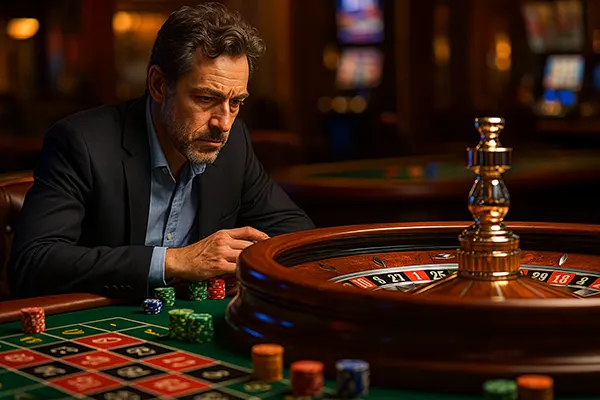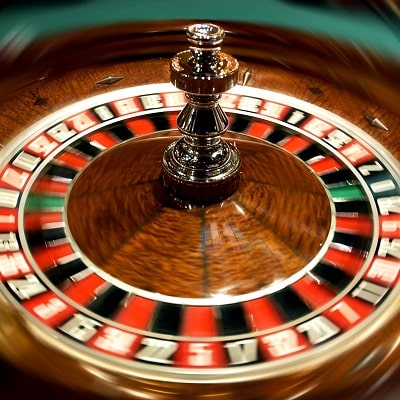Professional Roulette Players and Their Systems: Fact or Myth?

Roulette has long been surrounded by stories of professional players who claimed to have found ways to beat the wheel. From tales of mathematical geniuses to casino regulars swearing by their personal methods, the idea of consistent winning systems continues to attract attention. Yet in 2025, the debate remains strong: are these strategies genuinely effective, or are they just myths amplified by gambling folklore?
The Appeal of Professional Roulette Strategies
The popularity of roulette systems lies in their promise of predictability in a game defined by chance. Many players find comfort in structured approaches such as the Martingale, Fibonacci, or Labouchère, believing these systems can turn randomness into reliability. While the mathematics behind these strategies may appear logical, they often overlook the inherent unpredictability of each spin.
Professional players who rely on such methods often highlight discipline and bankroll management as critical elements. Rather than focusing on guaranteed wins, they emphasise the psychological benefits of structure, which can help reduce reckless play. However, even with careful planning, no system can alter the fact that roulette odds always favour the house.
Casinos in 2025 remain highly vigilant against potential exploits, using advanced technology to ensure the integrity of the wheel and random number generators in digital versions. This reinforces the difficulty of achieving a consistent edge, even for seasoned professionals.
Do Systems Really Change the Odds?
The short answer is no. Every spin of the wheel is independent, meaning that past outcomes have no effect on future results. Systems like the Martingale rely on chasing losses, which may work in the short term but collapse once table limits or depleted funds are reached. This highlights the mathematical reality: the house edge always persists.
Research and statistical analyses in 2025 continue to show that roulette remains a game of chance. Even professional gamblers who gained fame in the past often succeeded due to exploiting mechanical flaws or biases in older wheels—conditions that modern casinos have largely eliminated. As a result, any suggestion of foolproof strategies must be treated with scepticism.
Nonetheless, systems still hold value for many players as tools for structured play. They may enhance entertainment, provide a sense of control, and help manage betting patterns, but they cannot overturn fundamental odds.
The Influence of Psychology and Discipline
While mathematical systems may not guarantee long-term success, psychology plays a crucial role in how professional players approach roulette. Many professionals treat the game as a test of patience and emotional control rather than purely as a financial pursuit. Setting clear limits and knowing when to stop are often the real skills that separate casual players from more disciplined individuals.
In practice, professionals often rely less on so-called winning systems and more on self-regulation. For example, setting maximum loss thresholds prevents chasing losses that can quickly spiral. Similarly, defining modest winning goals helps maintain a sustainable approach, ensuring that gambling remains entertainment rather than obsession.
By focusing on behaviour rather than superstition, disciplined players create an environment where the risks of financial harm are reduced. This mindset, rather than reliance on mechanical systems, is what sustains their longevity at the tables.
The Role of Emotional Control
Emotional swings are one of the greatest challenges in roulette. The rush of a win and the frustration of a loss can push players into impulsive decisions. Professionals who succeed tend to detach emotionally, treating each spin as part of a larger statistical framework rather than a life-changing event. This calm perspective is vital for long-term play.
In 2025, many experienced players also incorporate mindfulness and stress-management techniques into their gaming routines. This reflects a growing recognition that psychological resilience is as important as financial strategy. By maintaining control, professionals avoid reckless patterns that erode their bankroll.
Therefore, while no system guarantees profit, emotional discipline can help transform roulette into a controlled form of entertainment rather than a risky financial endeavour. This distinction is often misunderstood but remains essential for responsible play.

Modern Technology and Roulette Systems
The evolution of technology has significantly shaped the landscape of roulette. In the past, professional players occasionally exploited physical wheel imperfections to gain an advantage. Today, however, casinos use precision-engineered wheels and continuous monitoring systems, making such opportunities nearly impossible. Online roulette is further safeguarded by certified random number generators, audited for fairness by independent authorities.
Mobile apps and online communities in 2025 continue to circulate new strategies, but none have been proven to overcome the house edge. Some tools focus instead on helping players track bets, set budgets, and maintain responsible habits. This reflects a shift from the illusion of beating the system toward the reality of managing risk effectively.
Regulatory bodies across Europe and beyond have also tightened standards, ensuring greater transparency in game fairness. As a result, the belief in unbeatable systems has steadily declined, while the emphasis on responsible gambling and awareness has grown stronger.
The Future of Professional Roulette Play
Looking ahead, the role of professional roulette players will likely continue to evolve. Without the possibility of consistent mathematical advantage, the focus shifts toward the cultural and psychological aspects of the game. Roulette remains a symbol of chance, glamour, and risk, but its professional pursuit is more about discipline than guaranteed profit.
In 2025, professional gamblers are increasingly viewed not as system-breakers but as ambassadors of responsible play. Their influence often lies in showing how structure, control, and awareness can coexist with enjoyment. This contributes to a healthier gambling environment overall.
Ultimately, the question of whether roulette systems are fact or myth has a clear answer: they are largely myth. The reality lies in human behaviour, discipline, and the recognition that roulette is designed to favour the house. Professional players who thrive are those who accept this truth while navigating the game responsibly.



